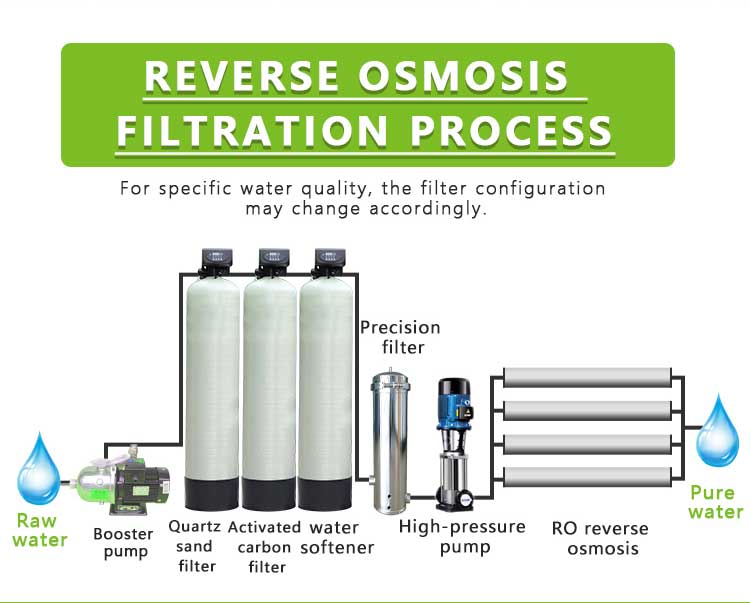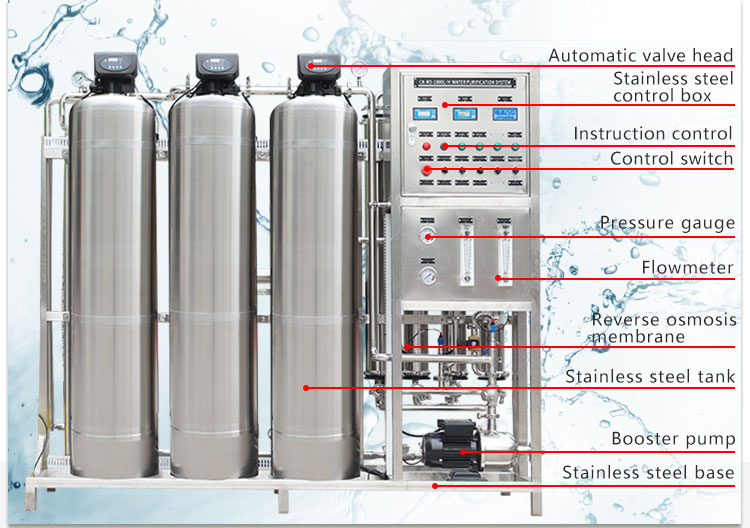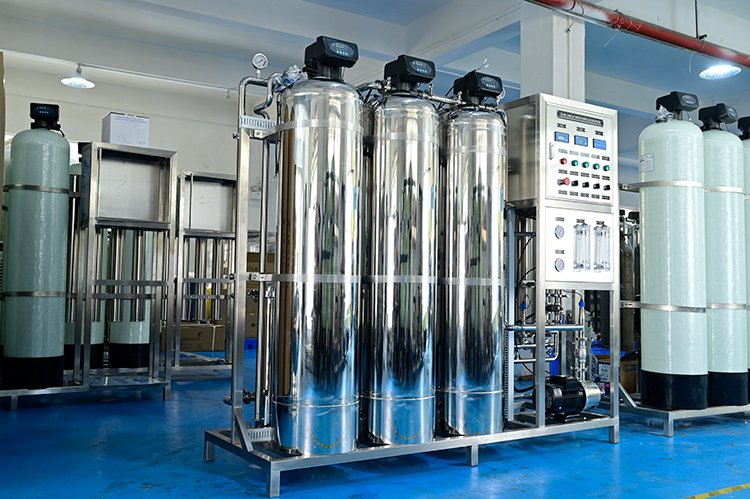What are the different types of water processing?
Water processing is an important process to ensure that we obtain clean and safe water sources, and different types of water processing methods have their own unique characteristics and scope of application.

5 common types of water processing:
1. Mechanical filtration:
Mechanical filtration is the most basic water processing method, which physically removes solid impurities in water, such as sediment, suspended particles, etc. This method usually includes steps such as screen filtration and sedimentation, and is suitable for treating water sources containing large particle impurities such as surface water and groundwater.
2. Chemical treatment:
Chemical treatment uses chemical reactions to remove pollutants and impurities in water. Common methods include flocculation, coagulation, neutralization, etc. This method is suitable for treating water sources containing dissolved pollutants, heavy metals, organic matter, etc., and can improve the cleanliness and transparency of water quality.
3. Biological treatment:
Biological treatment uses biological principles to remove organic matter and pollutants in water, and converts organic matter into harmless substances through the metabolism of microorganisms, thereby purifying water quality. This method is suitable for treating water sources containing organic waste, sewage, etc., and can degrade the concentration of organic matter and reduce pollution.
4. Membrane separation:
Membrane separation is an efficient water processing technology that separates dissolved substances and suspended solids in water through semipermeable membranes. Common methods include reverse osmosis, ultrafiltration, microfiltration, etc. This method can remove tiny particles and dissolved substances in the water, resulting in higher water quality, and is suitable for treating drinking water and industrial water.
5. Advanced oxidation treatment:
Advanced oxidation treatment uses oxidants to oxidatively degrade organic matter in water. Common methods include ozone oxidation, UV light oxidation, etc. This method can effectively remove organic matter and refractory pollutants in water and improve the safety and purity of water quality.
Through the above different types of water processing methods, we can choose the appropriate treatment technology based on the characteristics of the water source and the composition of pollutants to ensure clean and safe water quality.

How do mechanical filtration systems contribute to water purification?
Mechanical filtration is a basic method commonly used in water processing, so how does it promote water purification?
1. Removal of large particle impurities: The mechanical filtration system can effectively remove large particle impurities in the water, such as sediment, leaves, etc., by setting up screens with different pore sizes. These large particle impurities are the main suspended solids in the water. They can be completely removed from the water through mechanical filtration, improving the transparency and cleanliness of the water.
2. Protect subsequent processing equipment: The mechanical filtration system can effectively protect the subsequent processing equipment from damage and reduce the load of subsequent processing procedures. Removing large particle impurities from water through pretreatment can reduce wear and failure of subsequent treatment equipment and extend the service life of the equipment.
3. Improve water quality stability: Mechanical filtration systems can stabilize water quality and avoid fluctuations and mutations in water quality. By removing large particle impurities from water, mechanical filtration systems can reduce the content of suspended matter in water and maintain the stability and consistency of water quality.
4. Reduce subsequent processing costs: The mechanical filtration system can reduce subsequent processing costs and improve processing efficiency. Removing large particle impurities from water through pretreatment can reduce investment and energy consumption in subsequent treatment processes, and reduce treatment costs and operating costs.
Through the comprehensive application of the above measures, mechanical filtration systems play an important role in water treatment, promoting water purification and improving water quality safety.

What are the environmental impacts of different water treatment methods?
Water treatment is an important process in ensuring we have access to clean, safe water, but different water treatment methods can have different environmental impacts.
1. Mechanical filtration: Mechanical filtration system mainly removes solid impurities in water through physical means, and its environmental impact is relatively small. However, during the replacement process of screens and filter materials, a certain amount of waste may be generated, which needs to be properly disposed of to reduce the impact on the environment.
2. Chemical treatment: Chemical treatment systems often use chemical agents to remove pollutants from water, but these agents may have an impact on the water ecological environment. For example, residues of organic matter and heavy metals may cause harm to aquatic life. Pay attention to the use and discharge of agents. .
3. Biological treatment: Biological treatment systems degrade organic matter and pollutants through microorganisms, but these microorganisms may have an impact on the water ecosystem. For example, some microorganisms may reproduce in the water body and cause eutrophication. The number and type of microorganisms need to be controlled.
4. Membrane separation: Membrane separation systems can efficiently remove dissolved substances and particles in water, but the preparation and use of membrane materials may consume a lot of resources, such as energy and chemicals. At the same time, membrane fouling and membrane durability are also environmental issues that need to be considered. .
5. Advanced oxidation treatment: The advanced oxidation treatment system uses oxidants to remove organic matter in the water, but the use of oxidants may produce some by-products. For example, ozone may generate carbon monoxide and carbon dioxide, and attention needs to be paid to the treatment and discharge of by-products.
By evaluating and comparing the environmental impacts of different water treatment methods, appropriate water treatment technologies can be selected to minimize the impact on the environment and achieve the goals of sustainable development and environmental protection.




